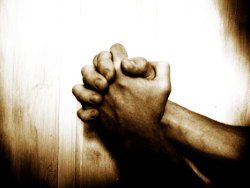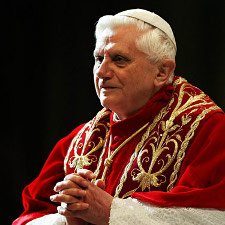Loading InLinkz ...
[Contributors: All faithful Catholic bloggers are invited to link 1 post from last month (ref: more info).]
[Contributors: Please join us again next month! More info: here.]
One guy's journey in the Catholic Church
[Contributors: All faithful Catholic bloggers are invited to link 1 post from last month (ref: more info).]
[Contributors: Please join us again next month! More info: here.]

Tomorrow is time for New Evangelists Monthly to begin a new edition. Today, I would like to bring to your attention 3 original, brief essays that you may have missed. If you don’t have time to read all three, I especially recommend the first one — Only prayer.

Sometimes we (and by “we,” I mean “I”), without thinking, forget that we do not have the power to fix everything that is wrong or to right all that is unjust. We witness or hear of terrible suffering and our first thought is to do something about it. That impulse is good and should be acted upon, but we err (a more polite description than “are delusional”) when we think that we alone can save the world, even subconsciously. Our real hope rests with God.
…read it all: Only prayer

I also believe that while it as sacred as ever, Vatican II “spirit” changes have made it less reverent. Not just the extreme liturgical abuses such as “liturgical dance,” but smaller abuses and practices. What exactly Mass is becomes lost. The poorly catechized may not see it as particularly different than any Christian worship service. Their sense of the real presence of Christ becomes questioning. Ultimately they may leave. The zeal of the faithful is also diminished.
…read it all: Reform the reform (part 1)

The bottom line is not that the liturgy of the Mass and other practices is wrong, broken or less sacred. It is that post-Vatican II “spirit” changes made in haste and/or with questionable authority should be reversed to restore greatest reverence. That is the point of reforming the reform.
…read it all: Reform the reform (part 2)

It is easy to get discouraged in the fight to end abortion. One political party is dedicated to its preservation. They insist on funding Planned Parenthood, whose evil should now be obvious to everyone. The question of when life begins, as the left loves to say in other contexts, is “settled science” – yet it somehow does not matter in the case of these innocent lives.
Despite the lack of progress with that political party, the American people are increasingly paying attention. There has been a real shift in perspective on abortion. It is increasingly seen decoupled from the (fake) women’s rights / war on women issue it never properly was. The humanity of unborn babies is increasingly apparent.
The Knights of Columbus has sponsored a Marist poll for almost a decade on abortion attitudes. It documents a solid shift, apparently invisible to liberal politicians and their proxies in the media. While we still have a long way to go, in America today 8 out of 10 people favor significant restrictions on abortion. Not perfect, but good news.
Carl Anderson, head of the Knights, wrote recently about the latest poll results for the National Review:
The idea that the “pro-choice” label represents a monolithic lobby made up of half of all Americans favoring an unrestricted right to abortion is simply not true. Instead, there is a new normal favoring substantial restrictions on abortion – and that consensus is made possible because of the agreement of a majority of Americans who call themselves “pro-choice.”
Despite the rhetoric of some in politics and the media, a substantial majority of men and women – including those who say they are “pro-choice” – consistently support increasing restrictions on abortion.
Those who say they are “pro-life” reliably support abortion restrictions in overwhelming numbers.
But it would likely shock most Washington pundits that the majority of those who say they are pro-choice also support such restrictions. And yet, surveys conducted by Marist, one of the country’s top polling groups, show that this is exactly the case.
Consider the data from the most recent Marist poll on the issue: Eight in ten Americans (81 percent) would restrict abortion to, at most, the first three months of pregnancy. This includes 66 percent of those who identify as pro-choice.
About six in ten Americans, and about the same number of pro-choice adherents, would ban abortion after 20 weeks of pregnancy. More than two-thirds of Americans (68 percent), and a majority of those who call themselves pro-choice (51 percent), would ban taxpayer funding of abortion.
Politically, “pro-choice” has come to mean supporting abortion rights throughout pregnancy and opposing all restrictions. But that’s not the way the average person thinks when he says he is pro-choice.
The idea that we should abort a seven-pound baby the day before its due date is just out of step with the vast majority of Americans.
The idea that we should abort a seven-pound baby the day before its due date is, while political dogma in some quarters, just out of step with the vast majority of Americans. And it’s out of step with the vast majority of pro-choice Americans too – about eight in ten of them reject this extreme position.
In fact, about a quarter of those who call themselves pro-choice (26 percent) support what is commonly seen as a strongly pro-life position: They would limit abortion to cases only of rape or incest or to save the life of the mother. In other words, those who identify as pro-choice are more likely to share the position of those who identify as pro-life than they are to share the position of the abortion-rights lobby and its defenders in politics and the media.
Read the whole piece: The Surprising New Normal in the Abortion Debate.

Enjoy this month’s edition of New Evangelists Monthly – an informal, dynamic, crowd-sourced “meta-magazine” showcasing the best posts faithful Catholic bloggers. In this and every issue, you will find many different, but faithfully Catholic viewpoints, insights and perspectives.

O God, who on this day, through your Only Begotten Son, have conquered death and unlocked for us the path to eternity, grant, we pray, that we who keep the solemnity of the Lord’s Resurrection may, through the renewal brought by your Spirit, rise up in the light of life. Through our Lord Jesus Christ, […]

Enjoy this month’s edition of New Evangelists Monthly – an informal, dynamic, crowd-sourced “meta-magazine” showcasing the best posts faithful Catholic bloggers. In this and every issue, you will find many different, but faithfully Catholic viewpoints, insights and perspectives.
Is God calling you too?
...learn more: Click!
© 2024 by George M. Sipe – All rights reserved | Sitemap | Privacy | Terms of Service
